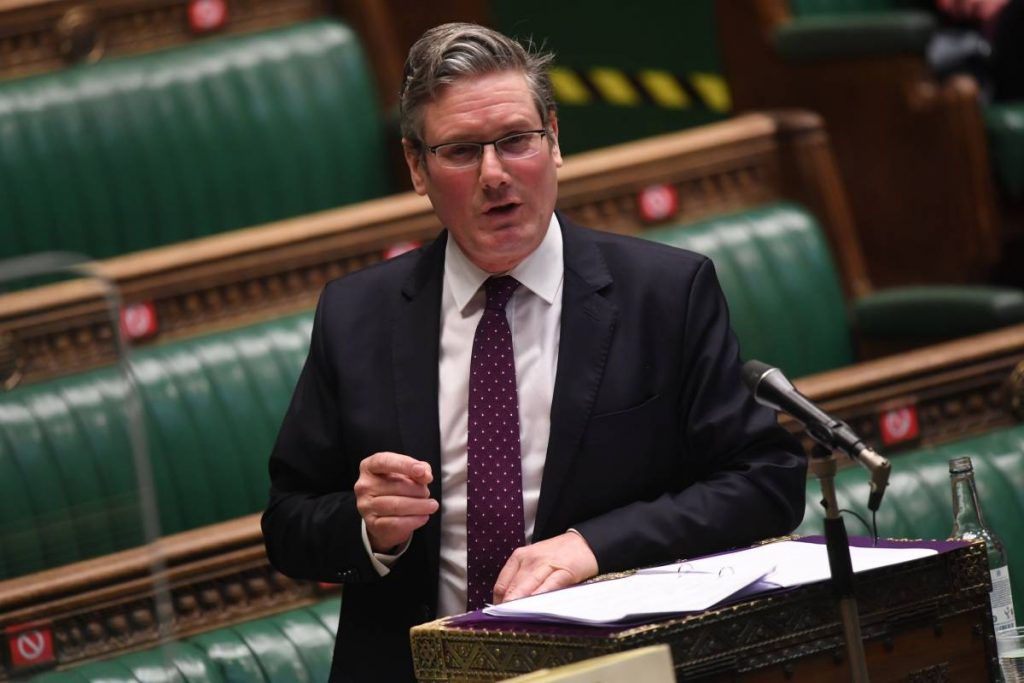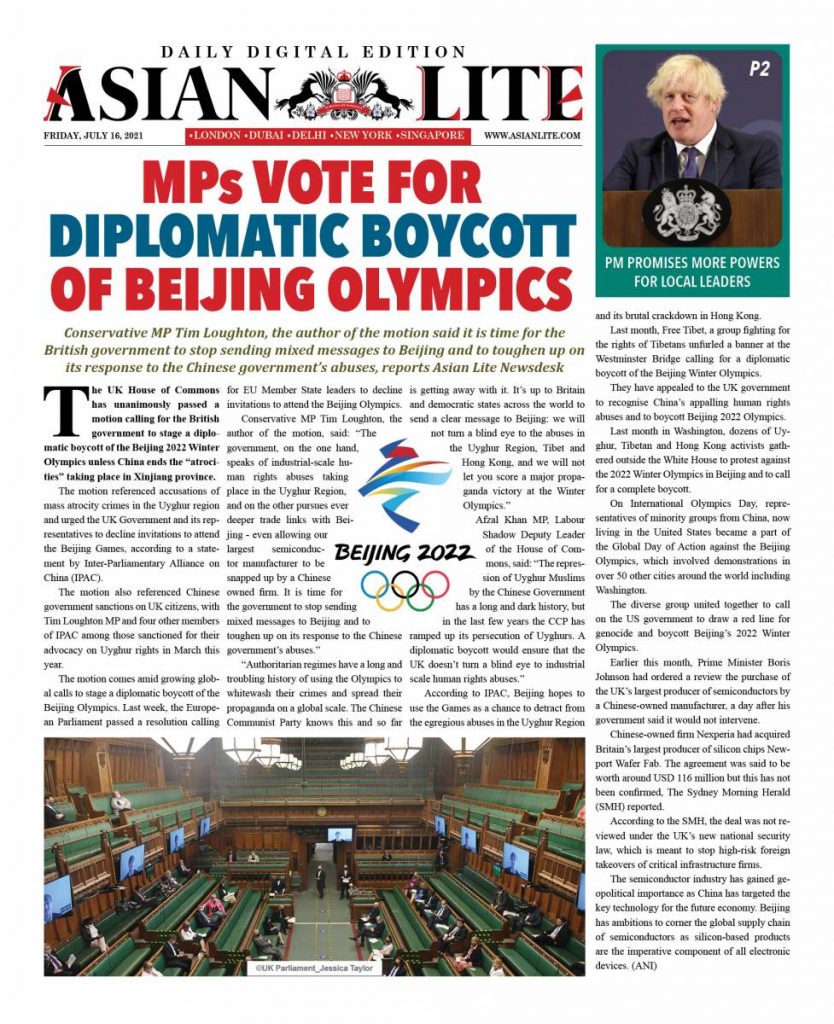Conservative MP Tim Loughton, the author of the motion said it is time for the British government to stop sending mixed messages to Beijing and to toughen up on its response to the Chinese government’s abuses, reports Asian Lite Newsdesk
The UK House of Commons has unanimously passed a motion calling for the British government to stage a diplomatic boycott of the Beijing 2022 Winter Olympics unless China ends the “atrocities” taking place in Xinjiang province.
The motion referenced accusations of mass atrocity crimes in the Uyghur region and urged the UK Government and its representatives to decline invitations to attend the Beijing Games, according to a statement by Inter-Parliamentary Alliance on China (IPAC).
The motion also referenced Chinese government sanctions on UK citizens, with Tim Loughton MP and four other members of IPAC among those sanctioned for their advocacy on Uyghur rights in March this year.
The motion comes amid growing global calls to stage a diplomatic boycott of the Beijing Olympics. Last week, the European Parliament passed a resolution calling for EU Member State leaders to decline invitations to attend the Beijing Olympics.

Conservative MP Tim Loughton, the author of the motion, said: “The government, on the one hand, speaks of industrial-scale human rights abuses taking place in the Uyghur Region, and on the other pursues ever deeper trade links with Beijing – even allowing our largest semiconductor manufacturer to be snapped up by a Chinese owned firm. It is time for the government to stop sending mixed messages to Beijing and to toughen up on its response to the Chinese government’s abuses.”
“Authoritarian regimes have a long and troubling history of using the Olympics to whitewash their crimes and spread their propaganda on a global scale. The Chinese Communist Party knows this and so far is getting away with it. It’s up to Britain and democratic states across the world to send a clear message to Beijing: we will not turn a blind eye to the abuses in the Uyghur Region, Tibet and Hong Kong, and we will not let you score a major propaganda victory at the Winter Olympics.”
Afzal Khan MP, Labour Shadow Deputy Leader of the House of Commons, said: “The repression of Uyghur Muslims by the Chinese Government has a long and dark history, but in the last few years the CCP has ramped up its persecution of Uyghurs. A diplomatic boycott would ensure that the UK doesn’t turn a blind eye to industrial scale human rights abuses.”

According to IPAC, Beijing hopes to use the Games as a chance to detract from the egregious abuses in the Uyghur Region and its brutal crackdown in Hong Kong.
Last month, Free Tibet, a group fighting for the rights of Tibetans unfurled a banner at the Westminster Bridge calling for a diplomatic boycott of the Beijing Winter Olympics.
They have appealed to the UK government to recognise China’s appalling human rights abuses and to boycott Beijing 2022 Olympics.
Last month in Washington, dozens of Uyghur, Tibetan and Hong Kong activists gathered outside the White House to protest against the 2022 Winter Olympics in Beijing and to call for a complete boycott.
On International Olympics Day, representatives of minority groups from China, now living in the United States became a part of the Global Day of Action against the Beijing Olympics, which involved demonstrations in over 50 other cities around the world including Washington.

The diverse group united together to call on the US government to draw a red line for genocide and boycott Beijing’s 2022 Winter Olympics.
Earlier this month, Prime Minister Boris Johnson had ordered a review the purchase of the UK’s largest producer of semiconductors by a Chinese-owned manufacturer, a day after his government said it would not intervene.
Chinese-owned firm Nexperia had acquired Britain’s largest producer of silicon chips Newport Wafer Fab. The agreement was said to be worth around USD 116 million but this has not been confirmed, The Sydney Morning Herald (SMH) reported.
According to the SMH, the deal was not reviewed under the UK’s new national security law, which is meant to stop high-risk foreign takeovers of critical infrastructure firms.
The semiconductor industry has gained geopolitical importance as China has targeted the key technology for the future economy. Beijing has ambitions to corner the global supply chain of semiconductors as silicon-based products are the imperative component of all electronic devices. (ANI)














